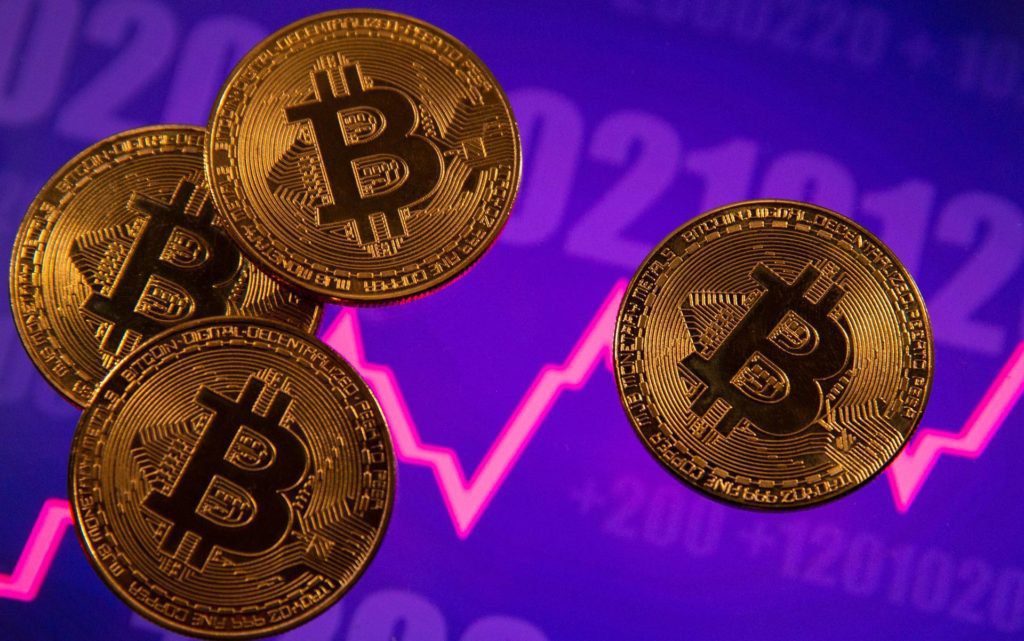Two months ago, in a survey, five in 10 UAE citizens said they plan to use cryptocurrencies within the next year. And 63 per cent admitted they are more open to using them now than they were a year ago. This came as no surprise. The Middle East has established itself as a global hub for innovation in financial technology, due in large part to the policies framed by regulators in the UAE who understand that the world is increasingly adopting cryptocurrencies and blockchain technology.
This progressive approach for fostering innovation has been a major influence for blockchain startups setting up in Abu Dhabi. Regarding it as the “Fourth Industrial Revolution”, the UAE government is a leading advocate of blockchain technology. In 2018, in order to advance this adoption, the UAE launched the Emirate’s Blockchain Strategy 2021, essentially creating a deadline for migrating at least 50 per cent of all government transactions onto decentralised technology.
In 2018, the Financial Services Regulatory Authority (FSRA) of the Abu Dhabi Global Market (ADGM) introduced a framework for operating crypto asset businesses that, with continuous engagement and refinement, represents an attractive and permissive regulatory apparatus. This has allowed Abu Dhabi to become an attractive jurisdiction for blockchain, fintech, and crypto companies, both large and small. For example, the FSRA is one of the first regulators in the world to recognise stablecoins and define fiat tokens, with the Digital Asset Exchange receiving the green light for operations under that formulation.
The substantial government resources that have been brought to bear on financial technology innovation have created tremendous opportunities to develop businesses and have encouraged a vibrant entrepreneurial spirit. This is evident throughout the community of the ADGM.
Home to world-renowned universities, the education system of Abu Dhabi includes the NYU Abu Dhabi campus as well as Khalifa University, recognised as the top university in the UAE. Many graduates of these institutions have gone on to contribute to cutting-edge technological developments such as blockchain and artificial intelligence, helping to make Abu Dhabi a leader in global innovation.
Supported by Abu Dhabi’s Ghadan 21 stimulus programme, the Hub71 accelerator community in ADGM has succeeded in attracting 102 startups to Abu Dhabi. Additionally, data from a startup platform showed that the UAE led the Middle East region in investment growth by number of deals and funding in the first half of this year, and that fintech startups closed the most number of deals.
Abu Dhabi Catalyst Partners Limited is another advocate for distributed ledger technology – a digital decentralised infrastructure – that drives innovation. Additionally, Fintech Abu Dhabi, Mena’s leading fintech festival, is an event that attracts investors and entrepreneurs to the region. Clearly, the regulatory landscape in the ADGM is a driving force behind the Middle East’s growth as a crypto and blockchain innovation hub.
For citizens, the level of digital transformation in payments has had tangible effects, leading to changes in consumer behaviour. Recent research from the online portal Fintech News Middle East showed that 2020 saw an increase in digital payments and a rise in fintech companies based in the UAE; 134 fintechs have their headquarters in the country. The majority of these are companies focused on payment/e-wallet, blockchain and cryptocurrency.
It is apparent that there is a strong appetite for crypto and financial innovation in the region. In the UAE alone, over the past two years, the total value of digital payment transactions has more than doubled and reached $18.5 billion in 2020.
In addition to a positive regulatory approach, the pandemic resulted in people’s openness to digital payments. The survey that found half of UAE citizens amenable to using cryptocurrencies next year also showed that two-thirds of UAE respondents had, over the course of the pandemic, tried a new payment method they would not have used under normal circumstances. So the role of how the pandemic changed behaviour cannot be understated.
There are other factors too – such as regulatory pragmatism, investor protection and tax incentives – that have helped enormously to create ADGM’s optimal framework for investment and blockchain and crypto innovation. Abu Dhabi’s ecosystem has played a critical part in digital transformation so far, and clearly, it shows no signs of slowing down.
(Except for the headline, this story has not been edited by The Finance World staff and is published from a syndicated feed.)


